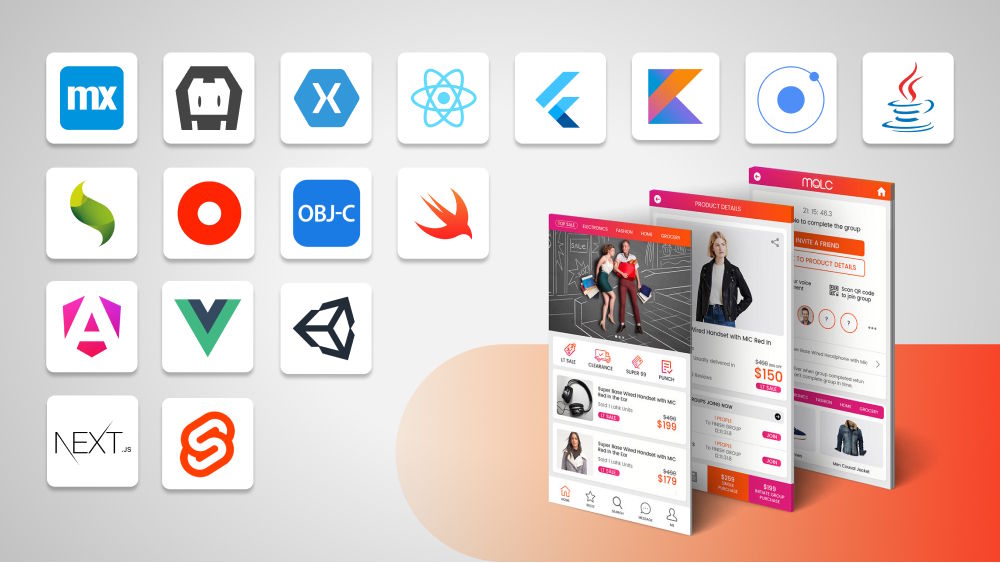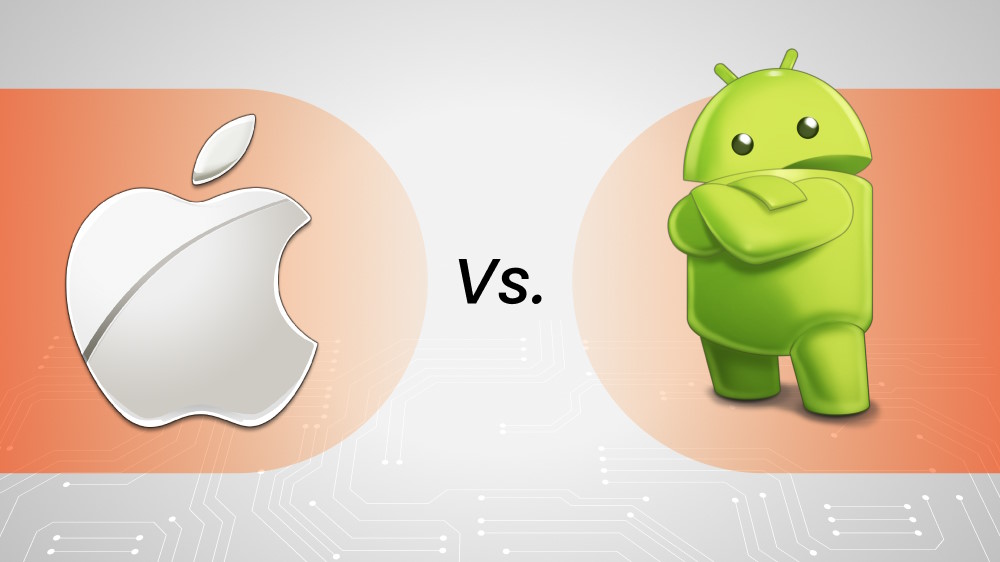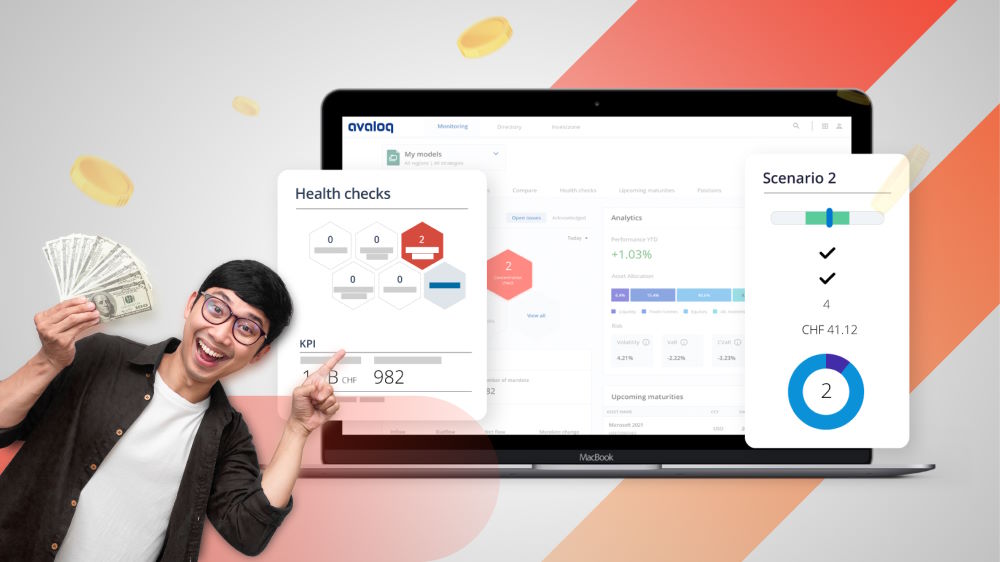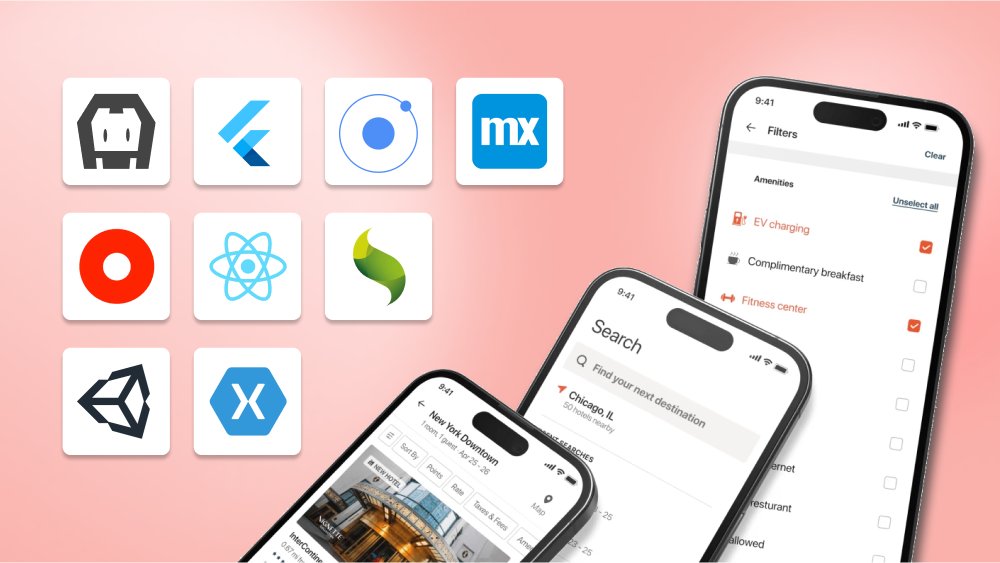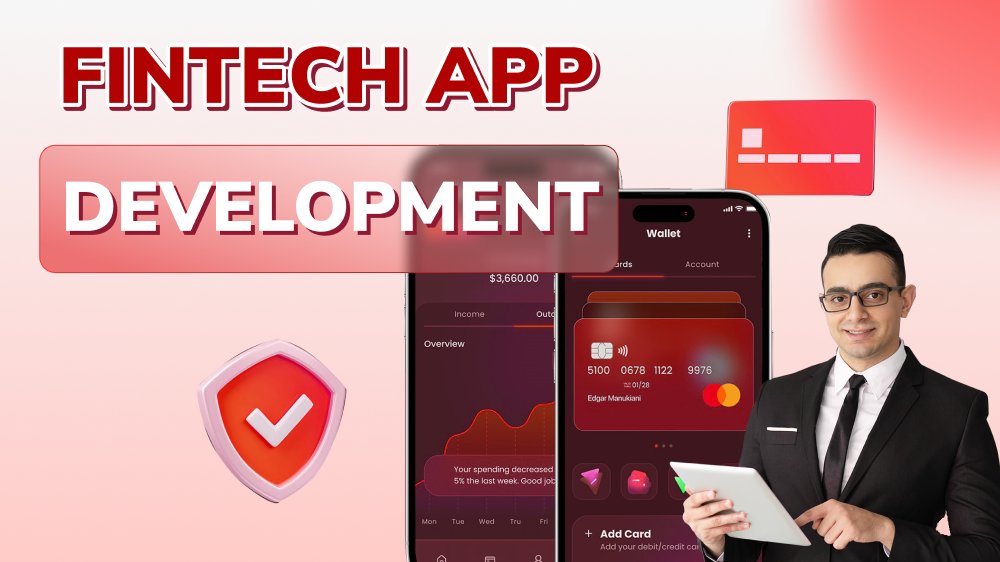Databases for Mobile Apps: Why They Matter and How to Choose the Right One
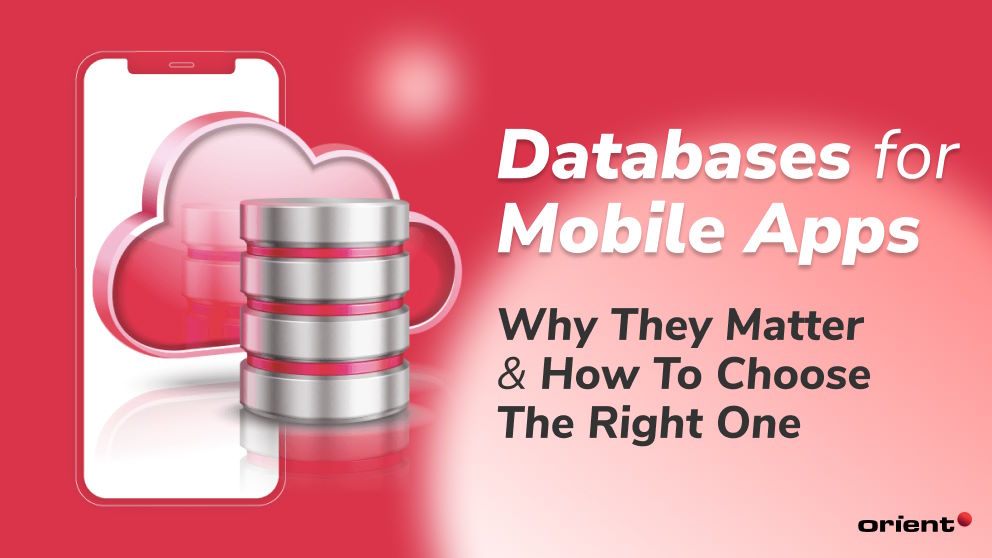
Content Map
More chaptersWhile it may not be obvious on the surface, the type of database that you use to power your mobile application is incredibly important.
Why? Because the database you choose has a significant impact on your mobile app’s performance, security, scalability, and data storage capabilities. Together, these factors influence your app’s ability to find and retrieve data, handle complex queries, and scale as your business needs change and grow.
However, with so many database types and vendors out there, choosing the right one can be tougher than it ought to be. In this article, you will find out what a database for a mobile app is, why they are important, the different available types, and the best practices to consider when choosing one.
What Is a Database for Mobile Apps?
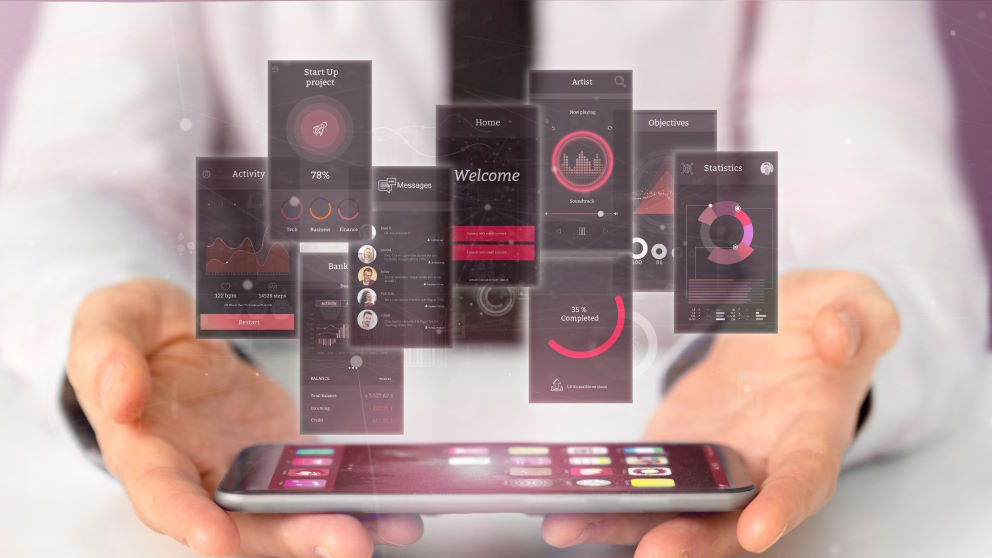
A database for a mobile app is an electronically organized collection of data and information. A typical mobile app database will contain data and information related to user profiles, functions and processes, security protocols, networking features, and more.
When sorted and arranged properly, databases make it easier for users to retrieve the data that they need in order to use a mobile app as intended. However, if a database is disorganized, problems occur. A mobile app may take longer to (or not be able to at all) process user requests, detect and address cybersecurity threats, and communicate with other databases and systems.
A database management system (or DBMS) is a kind of software that owners use to manage the data and information contained within their databases. This applies to mobile app databases, too. With it, users can manage every aspect of their database, including data manipulation, user authentication, inserting data, and extracting data, to name a few.
Why Are Mobile Apps Databases Important?
Mobile app database development is important for many reasons. Your database will determine how efficiently your mobile app can perform its intended functions. They enable a mobile app to store data, search for information, protect itself against cybersecurity threats, and interact with other databases and systems.
Here are a few key areas where databases help your mobile app function properly:
Data Storage
Mobile apps store large volumes of critical data. So, it makes sense to structure and organize your data in such a way that makes it easy for the app to access and manipulate that data. By centralizing your data into a well-organized database, your mobile app will be able to read and write data quickly and seamlessly, not only improving response times but also the user experience.
Security
Since mobile app databases store both sensitive data (particularly user profile data) and critical app data, it is imperative that a database uses the latest security measures, such as access control and encryption. These measures help protect the data from attempted breaches, ensuring that only the right people can access the right data at the right time as well. Furthermore, database security helps keep data safe, whether it is stationary or in transit.
Error Detection
A good mobile app database is able to detect all kinds of errors. These include inconsistent data, poor-quality data, and data that is no longer necessary (redundant). This enables a database to clean up its own environment, addressing inconsistencies and removing unnecessary data. Not only does this improve performance and response times, but it also gives mobile users the assurance that their data is accurate and reliable.
Understanding the Different Mobile App Databases

There are many types of databases for mobile apps out there. The right one for your project will depend on your unique requirements. What type of data do you intend to store? How often will your users need to access the database? Will your app grow and change over time? Answering these questions – and more – will help you choose the right mobile app database.
When you collaborate with a mobile application development team, they will help you choose the right database. At Orient Software, we take the time to understand the purpose and functionality of your app. We also evaluate your post-launch plans, including patches, app updates, and new features. For example, if you intend to grow your app as time goes on, then we may propose a semi-structured or unstructured database. These databases are better suited for handling large volumes of data and processing complex queries.
To help you choose the right database for your mobile app, here are the different types of databases to be aware of.
Relational Database
A relational database stores data in a traditional manner. That is, in a fixed series of rows and columns. As the size and complexity of your app grows, you can add more rows and columns to increase the amount of data you store. Relational databases are also known as structured query language (SQL) databases.
Distributed Database
A distributed database is stored on various devices across different geographical locations. Although the data structure sits on multiple computers, the computers communicate with each other to form a unified database. It also means that any change on one device will synchronize with the other devices and update the entire database.
NoSQL Database
A distributed NoSQL database is a non-tabular database. Unlike a distributed SQL database, a NoSQL database does not just use conventional rows and columns to store data; instead, it stores data in an unstructured or semi-structured manner, which enables it to adopt a wide variety of data models and flexible schemas to increase its data processing capabilities.
NoSQL databases also store data across multiple computers, which helps improve reliability by ensuring that even if one device runs into an error, the database will continue to function. A common type of NoSQL database is a key-value database, which stores data in a “key-value” format so that users can quickly read and write that data.
Centralized Database
A centralized database stores, processes, and manages its data in a single location. Depending on the database requirements, the ‘location’ could be a physical one, like a central data center, or it could be in the cloud. Since centralized databases are isolated to one location, they are easy to monitor and keep secure. However, these big data databases are a prime target for threat actors, as a successful attack could result in significant data loss.
End-User Database
An end-user database stores data and information about a mobile app’s users. This may include personal data, such as a user’s age or date of birth. It may also include data to help marketers personalize the user’s online experience, such as their interests, preferred brands, and purchase history. End-user databases may also store data related to a user’s cookies (which helps the app quickly identify the user).
Some mobile apps use end-user databases in conjunction with other databases, keeping the user data separate from the critical app data.
Best Practices When Choosing a Mobile App Database
You have a lot of decisions to make when it comes to choosing a database system. Fortunately, a dedicated software team will, ideally, take this burden off your shoulders and help you make an informed choice. That said, it is still a good idea to understand the process a team goes through to choose a database; with this knowledge, you will know whether the team is the right pick for your project.
Here are the key considerations to keep in mind for a mobile database.
Internet Functionality
When it comes to accessing data, high availability is important – both online and offline. Will users need a network connection to use your app (and, in turn, access your app data)? If so, then consider hosting your database server in the cloud. As long as the user’s device has internet access, then they can comfortably access your app.
However, if your app supports offline data access, then consider local mobile databases. A local database is ideal if your app intends to be accessed by users multiple times per day, as they won’t be restricted by limited connectivity wherever and whenever they access your app.
Number of Users
Generally speaking, the more mobile app users you acquire, the more queries your database has to perform. Naturally, some database types are better at handling large volumes and complex queries than others.
At Orient Software, we typically recommend NoSQL databases for apps with a high number of users. Why? Because of their unstructured data and semi-structured data processing capabilities, NoSQL databases are better equipped to process large volumes of data and respond accordingly to complicated queries.
Type of Programming Language
What programming language do you intend to use to build your mobile application? Some languages are better suited for certain databases than others. It also depends on your data storage requirements.
For example, languages like Kotlin and C# are object-oriented programming languages. This means that developers use these languages to create objects that have unique traits, behaviors, and classes. Therefore, an object-oriented data model is the best way to structure and organize this type of data, as it can recognize and work with this data instantly.
Developing Your Mobile App Database with Orient Software
Database management systems are a core component of mobile apps. A well-structured and organized one can provide high performance, data security, stability, and scalability. But a disorganized one can descend into chaos. The result? Subpar performance. Unidentified security gaps. And inaccurate or inconsistent data. Therefore, choosing the right database is vital to your mobile app running smoothly and achieving your business goals.
The Orient Software Approach
At Orient Software, our mobile app development team has over 18 years of experience in prototyping, developing, and launching both native and cross-platform mobile applications for Android and iOS devices.
This means our mobile app developers are uniquely qualified to evaluate your technical requirements and business goals. This way, we can recommend the best mobile database solution for your mobile app strategy. Our custom database development services place a primary focus on building databases that are user-friendly, secure, efficient, and scalable.
Personalized Solutions
Do you require a relational database management system to store and process a small, fixed amount of data? Or a NoSQL database to store large volumes of various data types? Either way, our mobile app developers can help.
We have the skills, knowledge, and capabilities to build the engine of your mobile app and get it running to deliver maximum performance and results.
For more information about our mobile app and database development services, contact us today.

